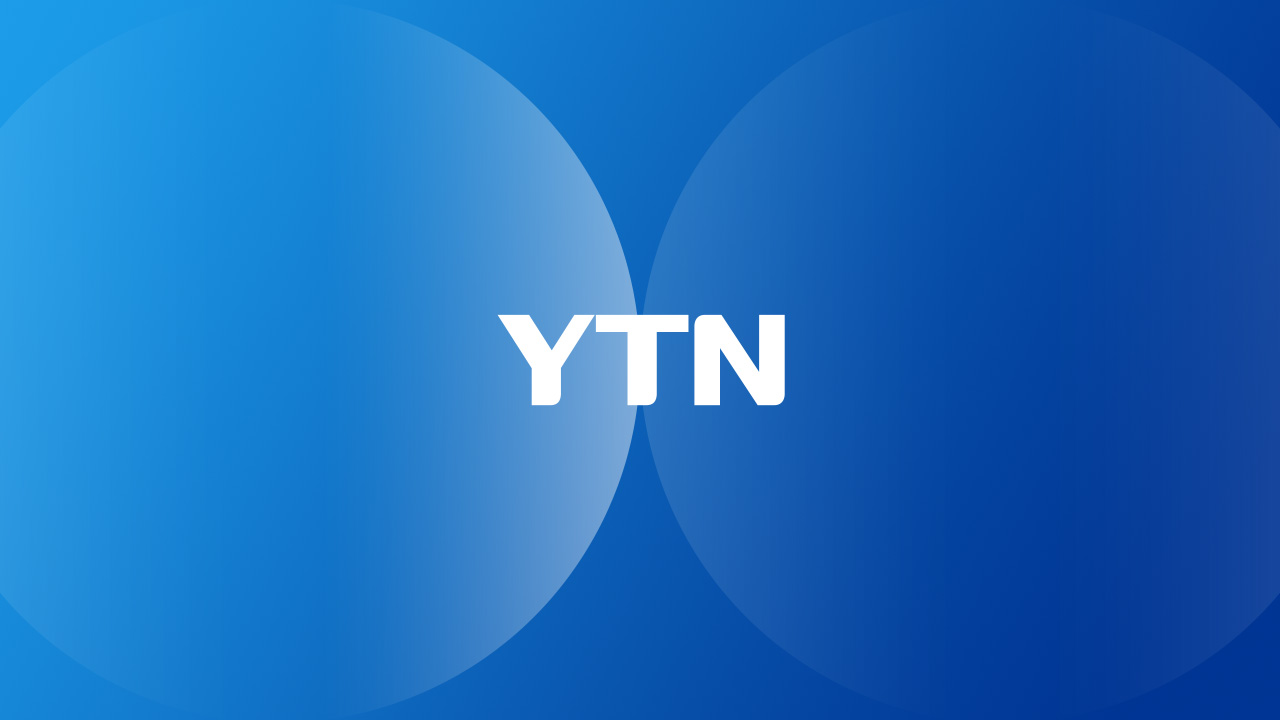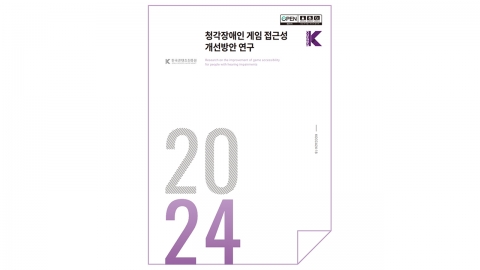[News UP] "illegal collection" of single mothers in their 30s who died...What are the measures to stop the damage?
2024.11.13 AM 08:27
■ Host: Anchor Yoon Jae-hee
■ Starring: Park Hyun-geun, Chairman of the Korea Bankruptcy Rehabilitation Lawyers Association
* The text below may differ from the actual broadcast content, so please check the broadcast for more accurate information. Please specify [YTN News UP] when quoting.
[Anchor]
YTN's exclusive report on illegal collection continues.Let's see why this continues to happen and if there are no measures to prevent it. I will be with the president of the Korea Bankruptcy Rehabilitation Lawyers Association and lawyer Park Hyun-geun. There was a case where a woman in her 30s made a sad choice over her young daughter because she suffered from illegal collection. There are a lot of similar cases like this in real life?
[Park Hyun-geun]
If you look at the cases caught when the National Tax Service launched a national simultaneous investigation into illegal private financial companies last year, there are cases where they made it like a wanted flyer with a picture of a debtor and distributed it to an acquaintance. There are also cases of threatening to kill a debtor who is a parent with pictures of a newborn baby, and especially in the case of a female debtor, I will sell it to an entertainment establishment as human trafficking. In some cases, the debtor made extreme choices by threatening or assaulting dozens of members.
[Anchor]
Looking at the case of A who died this time, the amount borrowed at first is a small amount of hundreds of thousands of won. But when I passed the deadline to pay back, my debt continued to increase even after a minute. Interest rates have increased to 3000%. Is this a common method?
[Park Hyun-geun]
is correct. First of all, it will be targeted at job seekers and housewives who have difficulty lending institutions. You'll get a small short-term loan. Then, when interest is calculated, ultra-high interest rates of 2000% and up to 28,000% are calculated. For example, lend 200,000 won and ask them to pay back 1.28 million won after 7 days, or pay back 800,000 won in principal and interest after a week on the condition of lending 500,000 won. In the case of the recent case commissioned by the Seoul Financial Welfare Counseling Center, it was a case in which 568% of interest was received by lending 11.4 million won to small self-employed businesses and asking them to pay 300,000 won back every day for 58 days.
[Anchor]
In this case, I saw that I was threatened by more than 100 text messages or phone calls a day, and there was also an interview with an acquaintance like this. What kind of intimidation method did you see at the scene?
[Park Hyun-geun]
The most common cases encountered in the field are, in the end, repeatedly contacting the debtor to make daily life impossible. The most common method is to go home or work and create fear or anxiety. That's why people who have been hit once feel like their hearts stop whenever they see a collection company. Because of this belief, illegal collectors are constantly injecting stress into debtors to get money from their surroundings because they can't stand it.
Furthermore, there will be personal and family-related data secured in advance when lending money. They combine the data to create an image of abusive language or intimidation and send it to the debtor, or if acquaintances' contact information is secured, they send the debtor's debt or abusive language and obscene messages to their acquaintances' contacts. These days, SNS accounts are active, so they are publicly notified of the debt through Facebook or Instagram. In some serious cases, there were cases where the debtor was caught asking for sexual exploitation with this bait or forcing him to take naked pictures or videos on the condition of delaying repayment.
[Anchor]
I think it's a situation where the debtor is really bullying to the point where he can't bear it. It is said that threats and dunning continue to be made to the rest of the family. Is there no way the rest of the family can avoid this?
[Park Hyun-geun]
Even if the debtor dies from an extreme choice, the debt problem remains. To distinguish between criminal and civil problems, heirs inherit the debt once the debtor has died. Then the debt collectors will still collect the debt against the heirs. Likewise, since it is subject to the Debt Collection Act at that time, threatening heirs or dunning them in violation of the law is also subject to criminal punishment. In addition, if the family members, not the heirs, are collecting, the possibility of criminal punishment will be higher. However, if you look at the civil problem, you said that the debt still remains. According to the current interest limit law or loan business law, even if the limited interest rate is exceeded, only the portion exceeding the limited interest rate is invalidated, but the remaining principal and interest remain as debt. Of course, the law sees the excess interest paid as being covered by the existing principal and interest, but it is because it presupposes that the principal and interest have to be paid back anyway. So, in the end, heirs have to give up inheritance in order to escape the debt.
[Anchor]
If I give up inheritance, do I not have to pay back after that?
[Park Hyun-geun]
Then the debt will continue to be passed on to the subordinate heirs eventually, and only if all subordinate heirs give up their inheritance.
[Anchor]
In fact, I think there will be cases in which illegal loan businesses are inevitably used even though they know that these things will happen. What kind of people usually end up in this swamp?
[Park Hyun-geun]
There will be people with the lowest credit rating, or people who need emergency funds such as hospital expenses and surgery expenses. In addition, vulnerable groups such as the unemployed and small self-employed recently choose illegal private financing. Given why they are bound to fall into the trap, there is easy access to loans that tempt them to only need their ID. Next, they are those who have already reached the limit of repaying principal and interest due to high interest rates. It's a situation where you have to keep turning it. Since we are already in this vicious cycle, we have no choice but to continue to use these illegal private finances, and we shouldn't borrow them with a cool head, but if we already need a supply, it becomes difficult to make a reasonable judgment, so we will receive such a ridiculous high-rate loan. So, if you look at a more fundamental reason, in the end, they will be those who cannot cross the threshold of loans after screening by the Financial Services Commission. Next, the lack of financial support for ordinary people for these people is a big problem, especially the lack of alternative financial products.
[Anchor]
As a last resort, there are many cases of knocking on the door of such illegal lenders, and I'm also curious about how they are exposed to illegal lenders. What are the processes?
[Park Hyun-geun]
These days, as you know, personal credit information is illegally distributed. That's why SNS target advertisements come in. In other words, it's accurately exposing people who are suffering from debt with online advertisements. That's why I'm approaching it. You can also see a lot of illegal flyers and street business cards offline. Also, the people will receive a lot of indiscriminate spam messages. There are many cases like that, and there are many calls impersonating loan recruiters. In addition, there are companies that mainly target places where there are many people in urgent need of loans as mentioned earlier, entertainment establishments, lodging facilities, markets, and hospitals. They are even approached by impersonating government-backed loans.
[Anchor]
He even told me various life-oriented methods. The police are investigating this case, and illegal loan sharks usually use fake phones and fake bank accounts, so isn't it difficult to track it?
[Park Hyun-geun]
Similarly, I try to avoid identity tracking and hide my transaction record because I use my cell phone instead of my name. That's why it's quite difficult for the police to track down cannon phones. In addition, in the case of fake bankbooks, criminal proceeds are concealed or laundered using fake bankbooks, so it takes considerable time and effort to understand and arrest the entire details of fake bankbooks. In particular, these days, if you have a fake phone or a fake bank account, you can use an online platform to make loans non-face-to-face. If so, it takes a lot of time and manpower to crack down on the investigation because it is difficult for the victims to tell the police about the identity of the borrowers because they have never met the person who gives the loan.
[Anchor]
Since this has happened for a long time, there have been criticisms that it is urgent to come up with measures. It's not that there have been no measures in place, what loopholes are there?
[Park Hyun-geun]
First of all, there is an institutional loophole that makes illegal lenders mass-produced. First of all, it's too easy to register for a loan business. The capital requirement is only 10 million won in the balance of the bank account, but you just need to prove it once you register. Subsequent withdrawal does not cancel the registration. In addition, there are many shared offices these days by exploiting the fact that a fixed workplace is needed, but in reality, on-site due diligence is not available, and you can actually use the shared office to create a loan company. And as I said about the problem of criminal punishment, it takes a lot of time and manpower to collect evidence or to get all out of illegal loan business organizations. There is a problem that the level of punishment in the court is not very high even if that large amount of manpower is put in to achieve results. There are also some cases in which our legal practice does not actively help victims in appealing to themselves as victims and receiving relief. First of all, it is regrettable that the debtor relief process or support process is regrettable because it approaches from that perspective whether this happened because you borrowed money but couldn't pay it back.
And I want to point out that debtors who are forced into urgent situations are people who need money after all, but there is a lack of emergency funds or policy funds for these people, and the low-income financial system is very scarce. Then, in the case of front-line illegal loan companies, administrative agencies are constantly required to detect illegal loan businesses and take administrative measures. But there is a huge shortage of front-line administrative personnel. So, local governments are actually letting go. And the key point I think is the lack of civil penalties for illegal lenders. You need a device that prevents you from receiving the principal at all.
[Anchor]
Critics continue to point out that the level of punishment is too low. In an interview, the chairman said this. You said that you are not afraid to go to jail because there are many ex-convicts in illegal private loan organizations, what do you mean?
[Park Hyun-geun]
In fact, according to the Supreme Court statistics, only 9.1% of the people were sentenced to prison in the first trial for four years from 2019 to 2022. The remaining 39% were released on probation. In addition, 39% were fined. Actually, criminal punishment doesn't work strongly. And looking at the defendants charged with illegal bonds in 2020, 51% of these defendants were ex-convicts. In the end, criminal punishment alone has its limitations because of the large economic benefits. As I said earlier, under the current law, only the excess of the limited interest rate is invalid, so if someone who operates illegally is not caught, they will earn enormous profits. Even if they are caught, the principal agreement is not illegal, and up to 20% of the annual interest is recognized by law, so if you consider these economic benefits, you are not afraid of criminal punishment. Because of this problem, if the maximum interest rate exceeds twice, a bill has already been submitted to the National Assembly that prevents creditors from claiming the principal as an antisocial legal act, not only the interest agreement but also the entire monetary agreement. Recently, the government also announced that it would submit a bill to invalidate principal and interest in cases of sex exploitation collection, human trafficking, physical injury, assault, and intimidation.
[Anchor]
There is a practical problem that it is difficult to root out because the punishment is low while the profit is high. What areas should I supplement more?
[Park Hyun-geun]
As I said, first of all, in the National Assembly, the law related to this part is the People's Livelihood Act. So, I would like to ask you to pass the Loan Business Act and the Interest Restriction Act as soon as possible. In addition, the government would like to request that sustainable policies, budgets, and professionals be deployed to drive out illegal lending businesses from a long-term perspective, and measures to protect and support the financially underprivileged who are flocking to illegal private finance should be expanded.
[Anchor]
Even at this moment, I think there are some people who are suffering from illegal collection somewhere, so please organize how to deal with it.
[Park Hyun-geun]
It was a sad case again this time. First of all, what I want to tell you is that don't worry about it alone and make sure to ask for help at the illegal private financial damage reporting center unconditionally. In particular, the collection of lenders is the most problematic, and there is a debt collection law. The Debt Collection Act established a debtor agent system, which prevents contact when a lawyer is hired. So, please actively use lawyer support through local government support agencies. Finally, most marginal debtors who already have faster principal and interest growth than their ability to repay face these problems, so I hope you get out of this predatory collection system quickly by using the personal bankruptcy system or the individual rehabilitation system. The Debtor Rehabilitation Act is, after all, the debtor's suicide prevention law.
[Anchor]
You mentioned the debtor agent system, but is the appointment of a lawyer free of charge from the government?
[Park Hyun-geun]
Basically, they are financially struggling, so even though there is a debtor agent system, it will be difficult to proceed with this with your own money. In the case of the Seoul Metropolitan Government, there is an institution called the Seoul Financial Welfare Counseling Center. If you go through that institution, you can use the debtor agent system. Similarly, each local government operates similar institutions. Please actively utilize the debtor agent system through each local government.
[Anchor]
I see. There are definitely parts where you can get help, so please check it out. I was with lawyer Park Hyun-geun, chairman of the Korea Bankruptcy Rehabilitation Lawyers Association. Thank you for talking with me today.
※ 'Your report becomes news'
[Kakao Talk] YTN Search and Add Channel
[Phone] 02-398-8585
[Mail] social@ytn. co. kr
■ Starring: Park Hyun-geun, Chairman of the Korea Bankruptcy Rehabilitation Lawyers Association
* The text below may differ from the actual broadcast content, so please check the broadcast for more accurate information. Please specify [YTN News UP] when quoting.
[Anchor]
YTN's exclusive report on illegal collection continues.Let's see why this continues to happen and if there are no measures to prevent it. I will be with the president of the Korea Bankruptcy Rehabilitation Lawyers Association and lawyer Park Hyun-geun. There was a case where a woman in her 30s made a sad choice over her young daughter because she suffered from illegal collection. There are a lot of similar cases like this in real life?
[Park Hyun-geun]
If you look at the cases caught when the National Tax Service launched a national simultaneous investigation into illegal private financial companies last year, there are cases where they made it like a wanted flyer with a picture of a debtor and distributed it to an acquaintance. There are also cases of threatening to kill a debtor who is a parent with pictures of a newborn baby, and especially in the case of a female debtor, I will sell it to an entertainment establishment as human trafficking. In some cases, the debtor made extreme choices by threatening or assaulting dozens of members.
[Anchor]
Looking at the case of A who died this time, the amount borrowed at first is a small amount of hundreds of thousands of won. But when I passed the deadline to pay back, my debt continued to increase even after a minute. Interest rates have increased to 3000%. Is this a common method?
[Park Hyun-geun]
is correct. First of all, it will be targeted at job seekers and housewives who have difficulty lending institutions. You'll get a small short-term loan. Then, when interest is calculated, ultra-high interest rates of 2000% and up to 28,000% are calculated. For example, lend 200,000 won and ask them to pay back 1.28 million won after 7 days, or pay back 800,000 won in principal and interest after a week on the condition of lending 500,000 won. In the case of the recent case commissioned by the Seoul Financial Welfare Counseling Center, it was a case in which 568% of interest was received by lending 11.4 million won to small self-employed businesses and asking them to pay 300,000 won back every day for 58 days.
[Anchor]
In this case, I saw that I was threatened by more than 100 text messages or phone calls a day, and there was also an interview with an acquaintance like this. What kind of intimidation method did you see at the scene?
[Park Hyun-geun]
The most common cases encountered in the field are, in the end, repeatedly contacting the debtor to make daily life impossible. The most common method is to go home or work and create fear or anxiety. That's why people who have been hit once feel like their hearts stop whenever they see a collection company. Because of this belief, illegal collectors are constantly injecting stress into debtors to get money from their surroundings because they can't stand it.
Furthermore, there will be personal and family-related data secured in advance when lending money. They combine the data to create an image of abusive language or intimidation and send it to the debtor, or if acquaintances' contact information is secured, they send the debtor's debt or abusive language and obscene messages to their acquaintances' contacts. These days, SNS accounts are active, so they are publicly notified of the debt through Facebook or Instagram. In some serious cases, there were cases where the debtor was caught asking for sexual exploitation with this bait or forcing him to take naked pictures or videos on the condition of delaying repayment.
[Anchor]
I think it's a situation where the debtor is really bullying to the point where he can't bear it. It is said that threats and dunning continue to be made to the rest of the family. Is there no way the rest of the family can avoid this?
[Park Hyun-geun]
Even if the debtor dies from an extreme choice, the debt problem remains. To distinguish between criminal and civil problems, heirs inherit the debt once the debtor has died. Then the debt collectors will still collect the debt against the heirs. Likewise, since it is subject to the Debt Collection Act at that time, threatening heirs or dunning them in violation of the law is also subject to criminal punishment. In addition, if the family members, not the heirs, are collecting, the possibility of criminal punishment will be higher. However, if you look at the civil problem, you said that the debt still remains. According to the current interest limit law or loan business law, even if the limited interest rate is exceeded, only the portion exceeding the limited interest rate is invalidated, but the remaining principal and interest remain as debt. Of course, the law sees the excess interest paid as being covered by the existing principal and interest, but it is because it presupposes that the principal and interest have to be paid back anyway. So, in the end, heirs have to give up inheritance in order to escape the debt.
[Anchor]
If I give up inheritance, do I not have to pay back after that?
[Park Hyun-geun]
Then the debt will continue to be passed on to the subordinate heirs eventually, and only if all subordinate heirs give up their inheritance.
[Anchor]
In fact, I think there will be cases in which illegal loan businesses are inevitably used even though they know that these things will happen. What kind of people usually end up in this swamp?
[Park Hyun-geun]
There will be people with the lowest credit rating, or people who need emergency funds such as hospital expenses and surgery expenses. In addition, vulnerable groups such as the unemployed and small self-employed recently choose illegal private financing. Given why they are bound to fall into the trap, there is easy access to loans that tempt them to only need their ID. Next, they are those who have already reached the limit of repaying principal and interest due to high interest rates. It's a situation where you have to keep turning it. Since we are already in this vicious cycle, we have no choice but to continue to use these illegal private finances, and we shouldn't borrow them with a cool head, but if we already need a supply, it becomes difficult to make a reasonable judgment, so we will receive such a ridiculous high-rate loan. So, if you look at a more fundamental reason, in the end, they will be those who cannot cross the threshold of loans after screening by the Financial Services Commission. Next, the lack of financial support for ordinary people for these people is a big problem, especially the lack of alternative financial products.
[Anchor]
As a last resort, there are many cases of knocking on the door of such illegal lenders, and I'm also curious about how they are exposed to illegal lenders. What are the processes?
[Park Hyun-geun]
These days, as you know, personal credit information is illegally distributed. That's why SNS target advertisements come in. In other words, it's accurately exposing people who are suffering from debt with online advertisements. That's why I'm approaching it. You can also see a lot of illegal flyers and street business cards offline. Also, the people will receive a lot of indiscriminate spam messages. There are many cases like that, and there are many calls impersonating loan recruiters. In addition, there are companies that mainly target places where there are many people in urgent need of loans as mentioned earlier, entertainment establishments, lodging facilities, markets, and hospitals. They are even approached by impersonating government-backed loans.
[Anchor]
He even told me various life-oriented methods. The police are investigating this case, and illegal loan sharks usually use fake phones and fake bank accounts, so isn't it difficult to track it?
[Park Hyun-geun]
Similarly, I try to avoid identity tracking and hide my transaction record because I use my cell phone instead of my name. That's why it's quite difficult for the police to track down cannon phones. In addition, in the case of fake bankbooks, criminal proceeds are concealed or laundered using fake bankbooks, so it takes considerable time and effort to understand and arrest the entire details of fake bankbooks. In particular, these days, if you have a fake phone or a fake bank account, you can use an online platform to make loans non-face-to-face. If so, it takes a lot of time and manpower to crack down on the investigation because it is difficult for the victims to tell the police about the identity of the borrowers because they have never met the person who gives the loan.
[Anchor]
Since this has happened for a long time, there have been criticisms that it is urgent to come up with measures. It's not that there have been no measures in place, what loopholes are there?
[Park Hyun-geun]
First of all, there is an institutional loophole that makes illegal lenders mass-produced. First of all, it's too easy to register for a loan business. The capital requirement is only 10 million won in the balance of the bank account, but you just need to prove it once you register. Subsequent withdrawal does not cancel the registration. In addition, there are many shared offices these days by exploiting the fact that a fixed workplace is needed, but in reality, on-site due diligence is not available, and you can actually use the shared office to create a loan company. And as I said about the problem of criminal punishment, it takes a lot of time and manpower to collect evidence or to get all out of illegal loan business organizations. There is a problem that the level of punishment in the court is not very high even if that large amount of manpower is put in to achieve results. There are also some cases in which our legal practice does not actively help victims in appealing to themselves as victims and receiving relief. First of all, it is regrettable that the debtor relief process or support process is regrettable because it approaches from that perspective whether this happened because you borrowed money but couldn't pay it back.
And I want to point out that debtors who are forced into urgent situations are people who need money after all, but there is a lack of emergency funds or policy funds for these people, and the low-income financial system is very scarce. Then, in the case of front-line illegal loan companies, administrative agencies are constantly required to detect illegal loan businesses and take administrative measures. But there is a huge shortage of front-line administrative personnel. So, local governments are actually letting go. And the key point I think is the lack of civil penalties for illegal lenders. You need a device that prevents you from receiving the principal at all.
[Anchor]
Critics continue to point out that the level of punishment is too low. In an interview, the chairman said this. You said that you are not afraid to go to jail because there are many ex-convicts in illegal private loan organizations, what do you mean?
[Park Hyun-geun]
In fact, according to the Supreme Court statistics, only 9.1% of the people were sentenced to prison in the first trial for four years from 2019 to 2022. The remaining 39% were released on probation. In addition, 39% were fined. Actually, criminal punishment doesn't work strongly. And looking at the defendants charged with illegal bonds in 2020, 51% of these defendants were ex-convicts. In the end, criminal punishment alone has its limitations because of the large economic benefits. As I said earlier, under the current law, only the excess of the limited interest rate is invalid, so if someone who operates illegally is not caught, they will earn enormous profits. Even if they are caught, the principal agreement is not illegal, and up to 20% of the annual interest is recognized by law, so if you consider these economic benefits, you are not afraid of criminal punishment. Because of this problem, if the maximum interest rate exceeds twice, a bill has already been submitted to the National Assembly that prevents creditors from claiming the principal as an antisocial legal act, not only the interest agreement but also the entire monetary agreement. Recently, the government also announced that it would submit a bill to invalidate principal and interest in cases of sex exploitation collection, human trafficking, physical injury, assault, and intimidation.
[Anchor]
There is a practical problem that it is difficult to root out because the punishment is low while the profit is high. What areas should I supplement more?
[Park Hyun-geun]
As I said, first of all, in the National Assembly, the law related to this part is the People's Livelihood Act. So, I would like to ask you to pass the Loan Business Act and the Interest Restriction Act as soon as possible. In addition, the government would like to request that sustainable policies, budgets, and professionals be deployed to drive out illegal lending businesses from a long-term perspective, and measures to protect and support the financially underprivileged who are flocking to illegal private finance should be expanded.
[Anchor]
Even at this moment, I think there are some people who are suffering from illegal collection somewhere, so please organize how to deal with it.
[Park Hyun-geun]
It was a sad case again this time. First of all, what I want to tell you is that don't worry about it alone and make sure to ask for help at the illegal private financial damage reporting center unconditionally. In particular, the collection of lenders is the most problematic, and there is a debt collection law. The Debt Collection Act established a debtor agent system, which prevents contact when a lawyer is hired. So, please actively use lawyer support through local government support agencies. Finally, most marginal debtors who already have faster principal and interest growth than their ability to repay face these problems, so I hope you get out of this predatory collection system quickly by using the personal bankruptcy system or the individual rehabilitation system. The Debtor Rehabilitation Act is, after all, the debtor's suicide prevention law.
[Anchor]
You mentioned the debtor agent system, but is the appointment of a lawyer free of charge from the government?
[Park Hyun-geun]
Basically, they are financially struggling, so even though there is a debtor agent system, it will be difficult to proceed with this with your own money. In the case of the Seoul Metropolitan Government, there is an institution called the Seoul Financial Welfare Counseling Center. If you go through that institution, you can use the debtor agent system. Similarly, each local government operates similar institutions. Please actively utilize the debtor agent system through each local government.
[Anchor]
I see. There are definitely parts where you can get help, so please check it out. I was with lawyer Park Hyun-geun, chairman of the Korea Bankruptcy Rehabilitation Lawyers Association. Thank you for talking with me today.
※ 'Your report becomes news'
[Kakao Talk] YTN Search and Add Channel
[Phone] 02-398-8585
[Mail] social@ytn. co. kr
[Copyright holder (c) YTN Unauthorized reproduction, redistribution and use of AI data prohibited]
Editor's Recomended News
-
I tried to break into a neighbor's house...Police take action to return home even after reporting electronic anklets.

-
Musk posts video of rally on social media, "Korea is in a difficult situation, what is the core of the issue?"
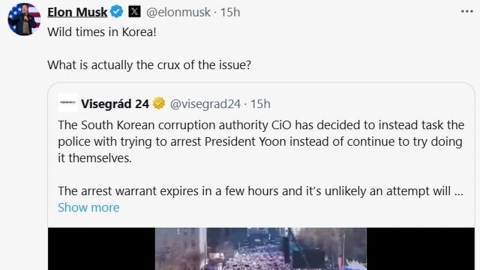
-
Seven Korean words, including tteokbokki and dalgona, were listed in the Oxford English Dictionary.
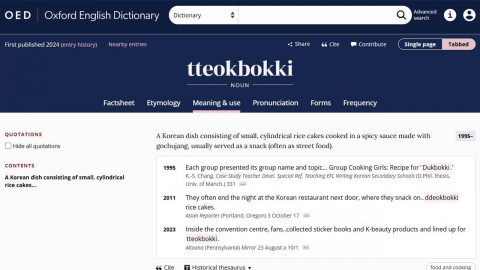
The Lastest News
-
70% of respondents "Tired of conflict of righteousness"...69% "could have prevented"
-
재생
 We're on high alert for a second warrant.At this time, in front of the official residence.
We're on high alert for a second warrant.At this time, in front of the official residence. -
재생
 The police are also concerned about whether the warrant will be reissued.At this time, the National Investigation Headquarters.
The police are also concerned about whether the warrant will be reissued.At this time, the National Investigation Headquarters. -
재생
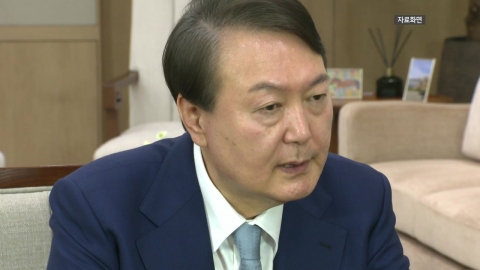 Can I get a second arrest warrant?Cooperation Version, Internal Discussion
Can I get a second arrest warrant?Cooperation Version, Internal Discussion



